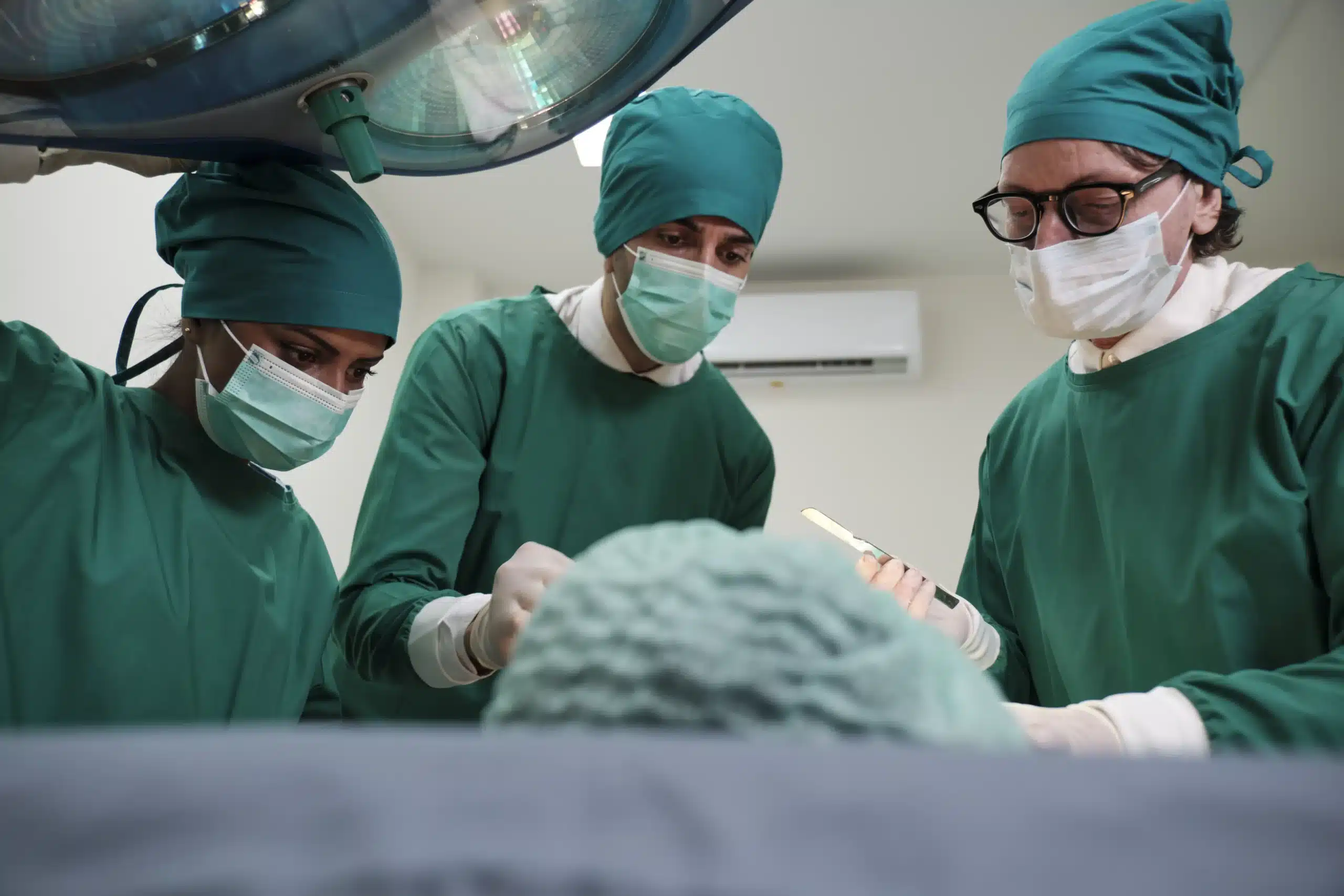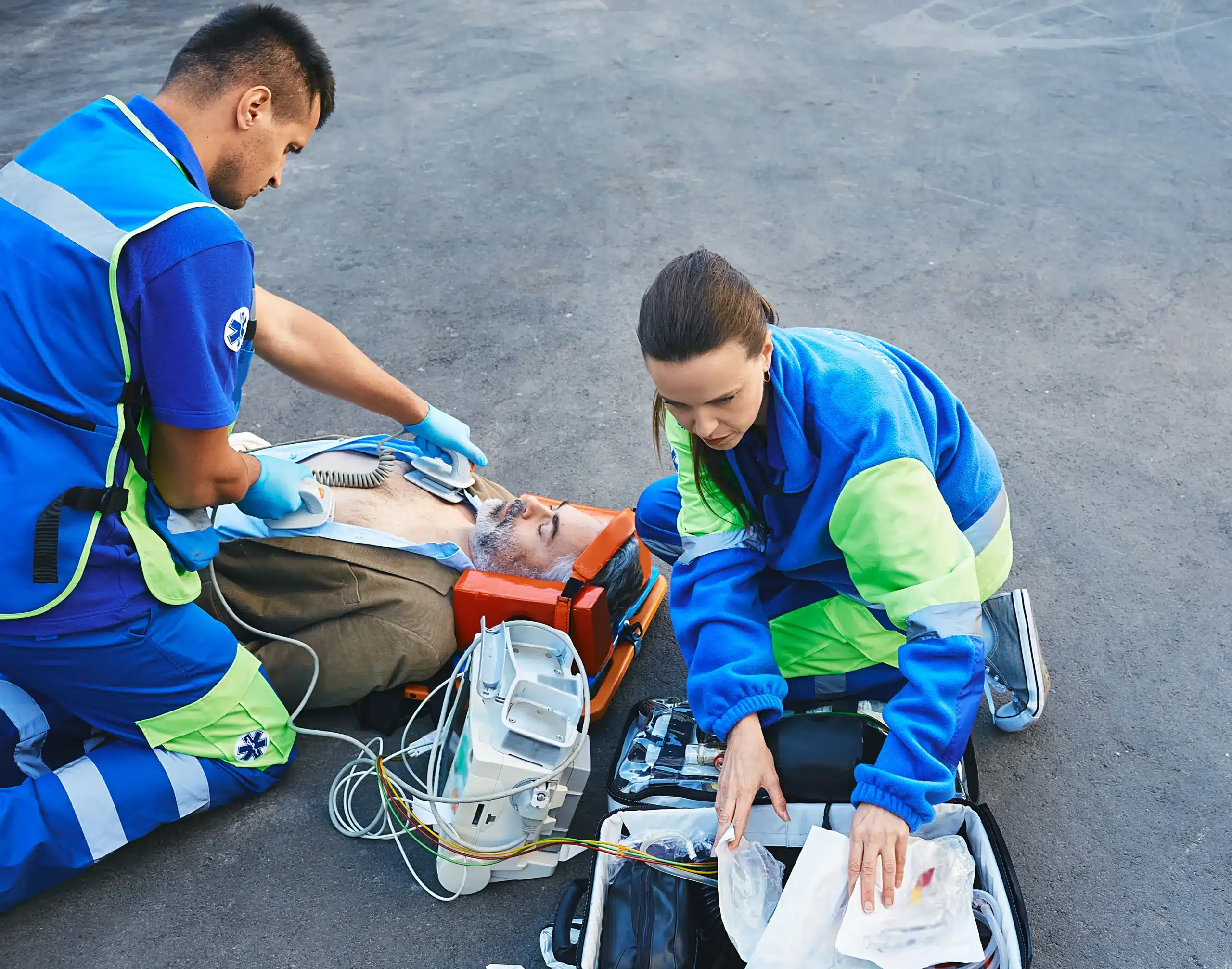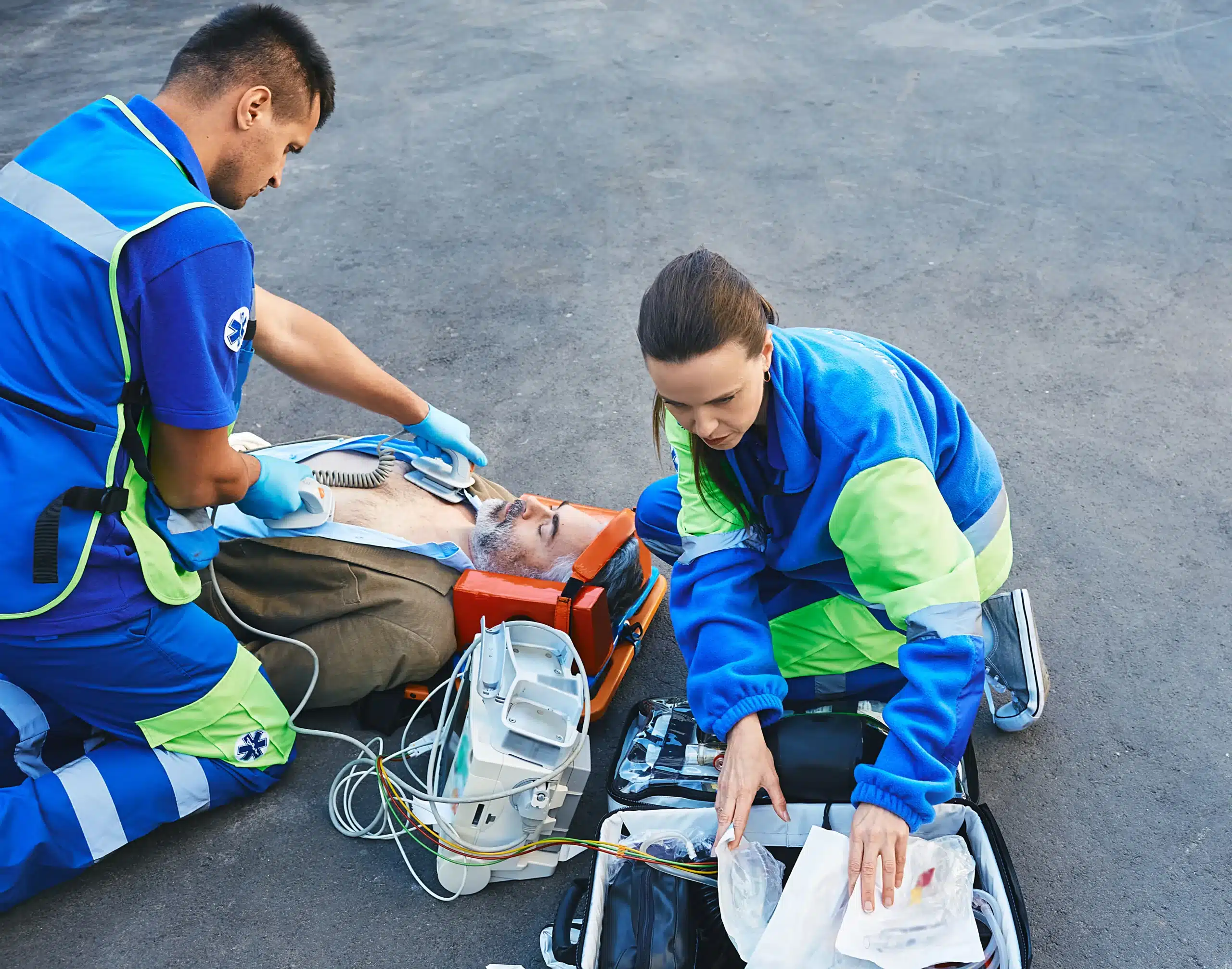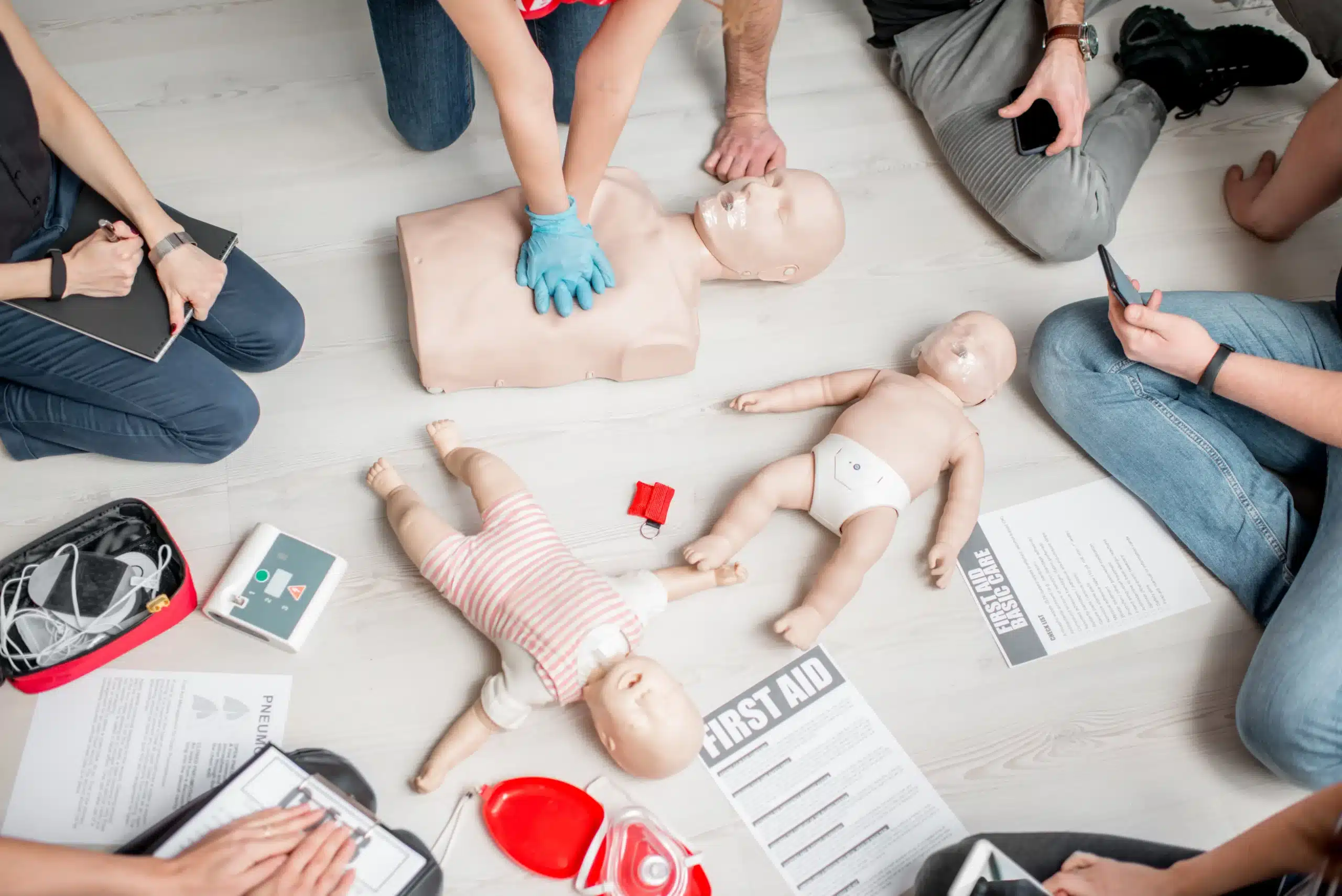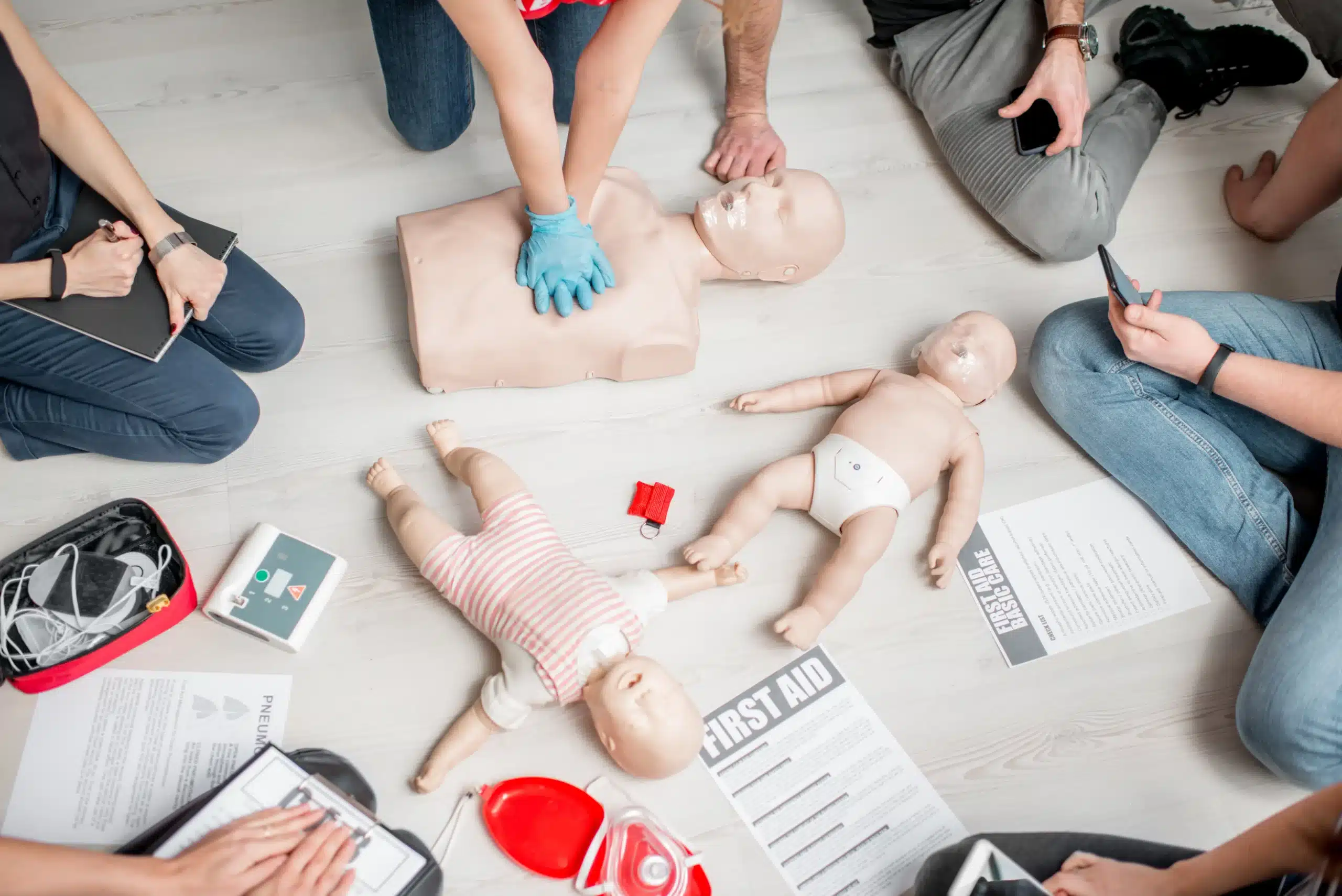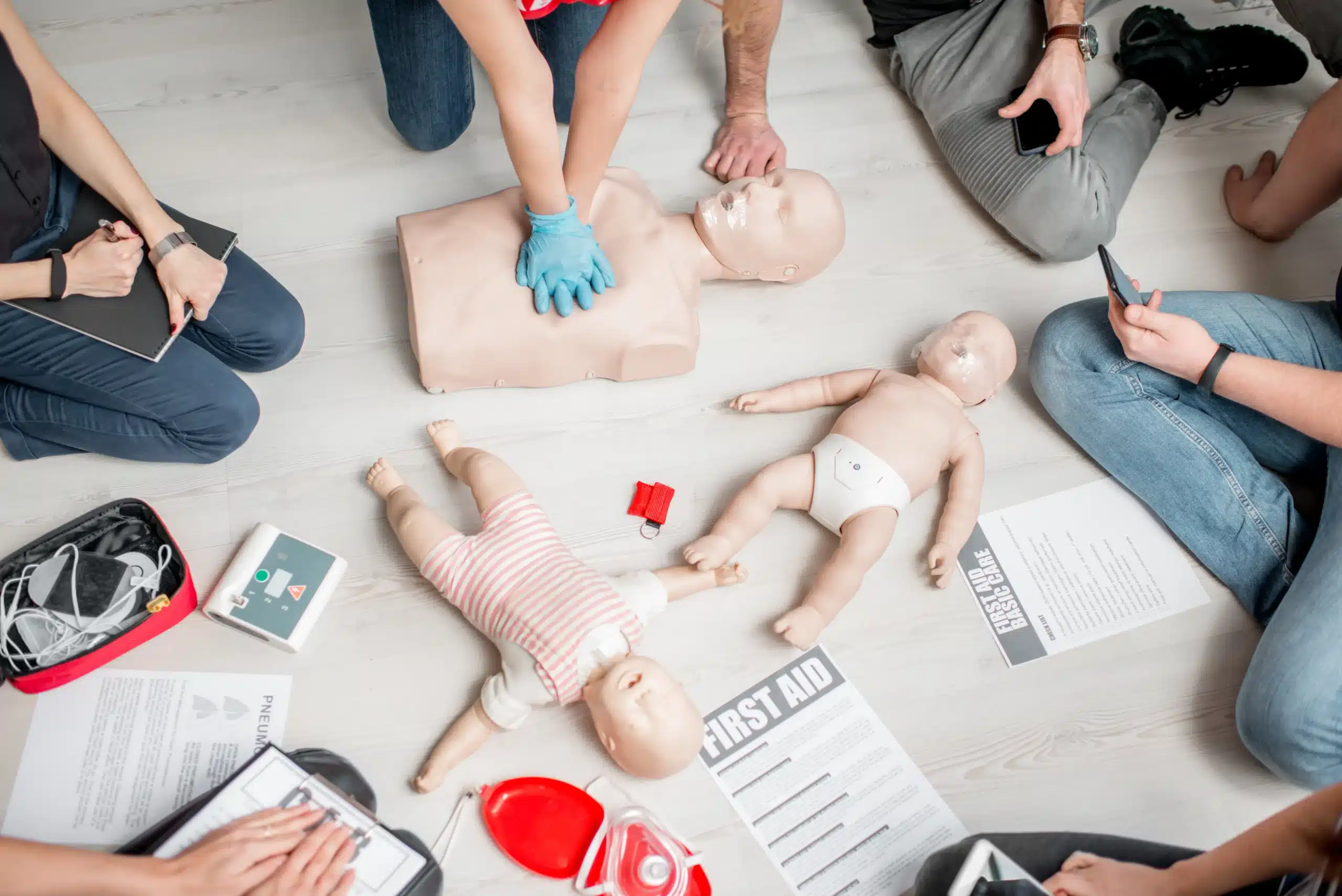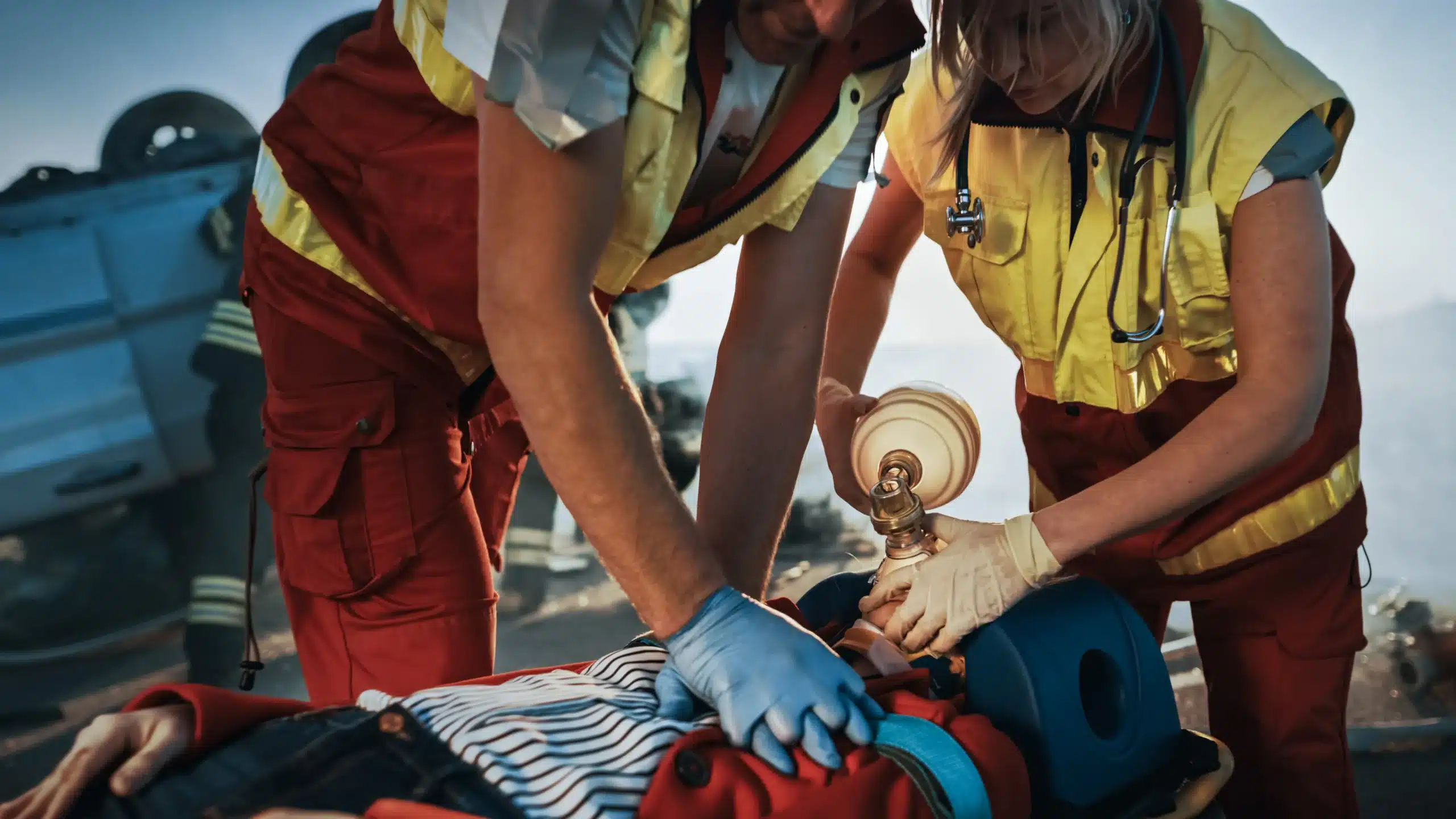In the face of a medical emergency, seconds can matter. Having first-aid training can empower you to provide immediate care, potentially making a significant difference in the outcome. This guide serves as your comprehensive resource for first-aid in Walnut Creek, covering everything from basic first aid and CPR to specialized courses like wilderness first aid and childcare first aid. We’ll delve into the importance of these skills, explore the various training options available in Walnut Creek, and guide you through the process of choosing the right course and staying certified. Let’s get you prepared to respond effectively in any situation.
Key Takeaways
- First aid skills empower you to help: From minor injuries to serious emergencies, knowing what to do can make all the difference. Find a course that fits your needs and schedule, whether you’re interested in basic first aid, CPR, or advanced certifications like BLS and ACLS.
- Choose quality instruction: Look for training providers like Safety Training Seminars, with experienced instructors, hands-on practice, and up-to-date facilities. AHA affiliation ensures your training aligns with the latest guidelines.
- Maintain your certification: Staying current is key. Explore convenient renewal options like the RQI program to keep your skills sharp and your certification valid. This ensures you’re always ready to respond effectively in any situation.
What is First Aid Training in Walnut Creek?
Knowing what to do in a medical emergency can make all the difference. First aid training equips you with the skills to respond effectively to various situations, from minor injuries to life-threatening emergencies. It empowers you to provide immediate care, potentially stabilizing a person’s condition until professional help arrives. In Walnut Creek, first aid training isn’t just valuable—it’s a vital part of a safe and prepared community.
Why First Aid Skills Matter
First aid skills are essential for handling emergencies effectively. Think about it: you’re at the park, and a child falls from the monkey bars, sustaining a cut. Or perhaps you witness a car accident, and someone needs immediate assistance. These are just a couple of scenarios where first aid knowledge can be invaluable. Being prepared to respond confidently can minimize the severity of injuries and even save lives. Having these skills not only benefits those around you but also brings a sense of personal empowerment.
Available First Aid Courses
Several organizations in Walnut Creek offer a range of first aid courses to suit different needs. These courses cover essential topics such as CPR, wound care, managing burns, and recognizing the signs of a stroke or heart attack. Safety Training Seminars offers various certification courses, including CPR, BLS, ACLS, PALS, and First Aid, seven days a week. Whether you’re looking for basic first aid certification or more advanced training, you’ll find options available throughout the week to fit your schedule.
Key Training Providers
Several reputable organizations provide first aid training in Walnut Creek. Here are a few to consider:
Safety Training Seminars
Safety Training Seminars is a woman-owned American Heart Association (AHA) Training Center offering high-quality BLS, ACLS, PALS, CPR, and first aid courses. Students receive their AHA certification card the same day they complete their training.
CPR Education
CPR Education offers CPR classes and training programs in Walnut Creek and nearby cities. Their instructors are AHA-certified and have experience working in emergency medical services.
Walnut Creek CPR Classes
Walnut Creek CPR Classes provides a range of courses, including CPR, BLS, ACLS, and First Aid, prioritizing convenience and customer service. They offer classes every day of the week, making it easy to find a time that works for you.
American Red Cross
The American Red Cross offers comprehensive first aid training that includes CPR and AED instruction. Their courses prepare individuals for various emergency situations, ensuring they can respond effectively.
Explore First Aid Training Options
Whether you’re a healthcare professional, a childcare provider, or simply someone who wants to be prepared for emergencies, understanding your first aid training options is essential. This section breaks down the various courses available in Walnut Creek.
CPR and AED Training
CPR and AED training are fundamental skills that empower you to respond effectively to cardiac arrest. You’ll learn how to perform chest compressions, provide rescue breaths, and operate an automated external defibrillator (AED). These skills can significantly improve the chances of survival for someone experiencing a cardiac event. Safety Training Seminars offers CPR and First Aid classes in Walnut Creek. For those specifically looking for American Heart Association certification, make sure to choose a training center affiliated with the AHA.
Basic Life Support (BLS) Courses
BLS certification goes beyond basic CPR, equipping healthcare providers and other professionals with the skills to manage respiratory and cardiac emergencies. BLS courses cover topics like airway management, ventilation techniques, and team dynamics during resuscitation. The American Heart Association’s Resuscitation Quality Improvement (RQI) program, offered through providers like Safety Training Seminars, is a popular choice for maintaining BLS certification and ensuring your skills are up-to-date.
Advanced Cardiac Life Support (ACLS)
ACLS training is designed for healthcare professionals who manage complex cardiac emergencies. This advanced course covers topics like ECG interpretation, pharmacology for cardiac arrest, and advanced airway management. ACLS certification is often required for physicians, nurses, paramedics, and other healthcare professionals working in critical care settings. Check with your employer or licensing board to confirm the specific requirements for your profession.
Pediatric Advanced Life Support (PALS)
PALS certification focuses on the specialized skills needed to respond to pediatric emergencies. This course covers topics like pediatric assessment, airway management, and fluid resuscitation. PALS certification is essential for healthcare providers who work with infants and children, ensuring they have the specific knowledge and skills to provide effective care in these situations.
Specialized First Aid Courses
Beyond the core certifications, there are specialized first aid courses tailored to specific needs. These might include wilderness first aid, childcare first aid, or occupational first aid. Safety Training Seminars offers flexible training options, including on-site training at your workplace, to accommodate various schedules and requirements. Consider your work environment and potential hazards when choosing a specialized course.
Get Certified: Quality Instruction
When your health—or the health of a loved one—is on the line, you want to know you have the right skills. That’s why choosing quality instruction is key when it comes to first aid and CPR training. Here’s what to look for in a training provider:
Instructor Qualifications and Experience
Experienced instructors bring real-world knowledge to the classroom. Look for instructors certified by the American Heart Association (AHA) with backgrounds as emergency personnel like firefighters, EMTs, or paramedics. Their experience translates into practical, actionable training you can rely on. Safety Training Seminars in Walnut Creek, for example, offers courses taught by AHA-certified instructors with extensive experience in emergency situations.
Training Facilities and Equipment
The right learning environment can make all the difference. Modern training facilities equipped with up-to-date mannequins and medical equipment provide a realistic training experience. This hands-on approach helps build confidence and reinforces essential skills. Check if the training center, like Safety Training Seminars, is an official American Heart Association Training Center. This often means access to the latest training materials and equipment.
Hands-on Practice
First aid training isn’t just about lectures and textbooks. It’s about developing the muscle memory and quick thinking needed to respond effectively in an emergency. Look for courses that emphasize hands-on practice, allowing you to apply techniques and build confidence in a supportive environment. Australia Wide First Aid highlights the importance of this practical approach, using real-world examples to prepare students for various scenarios. This focus on practical application is crucial for effectively handling real-life emergencies.
American Heart Association Affiliation
AHA affiliation ensures your training aligns with the latest medical guidelines and best practices. Choosing an AHA-certified training center like Safety Training Seminars means your certification will be widely recognized and respected. This is particularly important for professionals who require certification for their careers. AHA affiliation offers credibility and ensures you’re receiving high-quality instruction.
Certification Process and Validity
After completing your training, you’ll receive an official AHA certification card. Make sure to check the validity period, which is typically two years. Knowing the expiration date helps you stay on top of your recertification requirements and maintain your skills. Walnut Creek CPR Classes provides AHA-certified courses with official certification upon completion, making it easy to obtain and maintain your credentials.
Costs, Schedules, and Deals
Finding the right first aid training often involves balancing quality with affordability and convenience. Let’s break down how to evaluate costs, explore potential discounts, and find a schedule that works for you.
Pricing and Value
Safety Training Seminars, a woman-owned American Heart Association (AHA) Training Center, focuses on delivering high-quality training at competitive prices. They understand that value goes beyond just the dollar amount—it’s about receiving comprehensive instruction that prepares you to confidently handle emergencies. For a closer look at their pricing, visit their website.
Discounts and Promotions
It’s always a good idea to inquire about potential discounts. Many training centers offer various ways to save on courses.
Group Discounts
If you’re training a team or group, Safety Training Seminars offers group discounts and can bring the training to your location. This customized approach makes it both convenient and cost-effective.
Student Discounts
Students can often find discounted rates. Reach out to Safety Training Seminars directly to check your eligibility. Their customer service team is readily available to answer your questions.
Referral Programs
Some training centers have referral programs. Ask Safety Training Seminars about potential discounts or rewards for referring others.
Seasonal Offers
Keep an eye out for seasonal promotions or limited-time offers for potential savings.
Flexible Class Schedules
Juggling work, family, and other commitments can make scheduling training tricky. Safety Training Seminars offers flexible class schedules, including weekend and evening options. Plus, you’ll receive your AHA card immediately upon course completion.
On-Site and Blended Learning
For added convenience, consider on-site training. Blended learning, combining online coursework with in-person skills practice, offers another flexible route. Explore the various training formats available at Safety Training Seminars to find the best fit.
Choose the Right First Aid Training
Finding the right first aid training involves understanding your needs, researching providers, and making an informed decision. Let’s break down each step.
Assess Your Needs
Before you jump into a course, think about why you’re pursuing first aid training. Are you required to have certification for your job, like many healthcare providers and childcare professionals? Are you a parent looking to feel more prepared in emergencies? Or maybe you’re interested in volunteering for a local organization. Your reason will influence the type of training you need. For example, a healthcare worker might need ACLS certification, while a parent might be fine with a basic first aid and CPR course. Consider your current skill level, too. If you’ve had prior training, a refresher course might suffice. A comprehensive program may be more beneficial if you’re starting from scratch.
Compare Training Providers
Once you understand your needs, it’s time to research training providers in your area. Look for providers like Safety Training Seminars offering a variety of courses, including CPR, BLS, ACLS, PALS, and First Aid. Location and scheduling are also key factors. Choose a provider with a convenient location, like Safety Training Seminars, which serves Walnut Creek, Concord, and Pleasant Hill. Check if they offer weekend or evening classes to accommodate your schedule. Also, compare pricing and look for any available discounts. Safety Training Seminars has a low price guarantee, which can help you save money. Reading online reviews can give you insights from other students.
Make an Informed Decision
Finally, gather all the information you’ve collected and make an informed decision. Check the provider’s credentials and ensure they are an American Heart Association Training Center, like Safety Training Seminars. This ensures you’ll receive high-quality instruction and a recognized certification. Confirm the certification process and how long it’s valid. Some providers, including Safety Training Seminars, issue same-day AHA certification cards. By taking the time to research and compare, you can find the perfect first aid training program that meets your needs.
Enroll and Stay Certified
Getting certified in first aid and CPR is straightforward, and staying current with your skills is easier than you think. Here’s what you need to know about enrolling in a course and maintaining your certification.
Prerequisites and Enrollment
Most first aid and CPR courses have minimal prerequisites, making them accessible to almost anyone. Often, the main requirement is a willingness to learn and participate in hands-on training. Check with your chosen training provider, like Safety Training Seminars, for specific course requirements. They offer a range of AHA-certified courses, including BLS, ACLS, and PALS, making it easy to find the right fit. Enrolling is typically a simple online process.
Course Duration and Flexibility
First aid and CPR courses are designed to fit busy schedules. Many providers offer weekend and evening classes, as well as accelerated options. Safety Training Seminars offers courses daily, so you can receive your American Heart Association certification card quickly. This flexibility ensures you can find a course that works for you, whether you’re a busy professional, parent, or student. The streamlined process means you can get certified without disrupting your routine.
Renewal and Continuing Education
Staying up-to-date with your first aid and CPR skills is crucial. Certifications typically expire after two years, so regular renewal is essential. The RQI program offered by Safety Training Seminars is a convenient and efficient way to maintain your BLS, ACLS, and PALS certifications. This program offers flexible online learning modules combined with hands-on skills sessions, making it easier to stay current with the latest resuscitation guidelines. By prioritizing continuing education, you ensure you’re always prepared to provide effective assistance in an emergency.
Related Articles
- First Aid Certification Walnut Creek: Your Guide – Walnut Creek CPR Classes
- Pediatric CPR & First-Aid Classes in Walnut Creek – Walnut Creek CPR Classes
- American Heart Association Training in Walnut Creek – Walnut Creek CPR Classes
- First-Aid Training in Concord: Your Complete Guide – Walnut Creek CPR Classes
- Your Guide to CPR Classes in Walnut Creek – Walnut Creek CPR Classes
Frequently Asked Questions
What are the different types of first aid and CPR training available in Walnut Creek?
Walnut Creek offers a range of courses, from basic first aid and CPR to more advanced certifications like BLS, ACLS, and PALS. Specialized courses such as wilderness first aid and childcare first aid are also available. The best choice for you depends on your specific needs and goals, whether you’re a healthcare professional, parent, or simply someone wanting to be prepared for emergencies.
How do I choose a reputable first aid training provider?
Look for providers with experienced, certified instructors, preferably with backgrounds in emergency medical services. Check for modern training facilities and equipment, and make sure the provider offers hands-on practice. AHA affiliation is a strong indicator of quality, ensuring the training aligns with the latest guidelines. Finally, consider convenience factors like location, scheduling options, and the certification process.
What is the American Heart Association (AHA), and why is their certification important?
The AHA is a leading authority on cardiovascular health and emergency care. Their certification is widely recognized and respected, particularly in healthcare settings. AHA-certified courses ensure you receive high-quality instruction based on the latest scientific guidelines. For many healthcare professionals, AHA certification is a job requirement.
How much does first aid and CPR training cost, and are there any discounts available?
Costs vary depending on the course and provider. Many providers offer discounts for groups, students, and referrals. It’s always wise to inquire about potential savings. Look for providers with transparent pricing and a commitment to value, ensuring you receive comprehensive training at a competitive price.
How can I fit first aid and CPR training into my busy schedule, and how do I maintain my certification?
Many training centers offer flexible schedules, including weekend and evening classes, as well as online and blended learning options. Once certified, staying current is key. Look for providers offering convenient renewal options, such as the RQI program, which combines online learning with in-person skills sessions. This allows you to maintain your skills and ensure you’re always prepared for emergencies.
